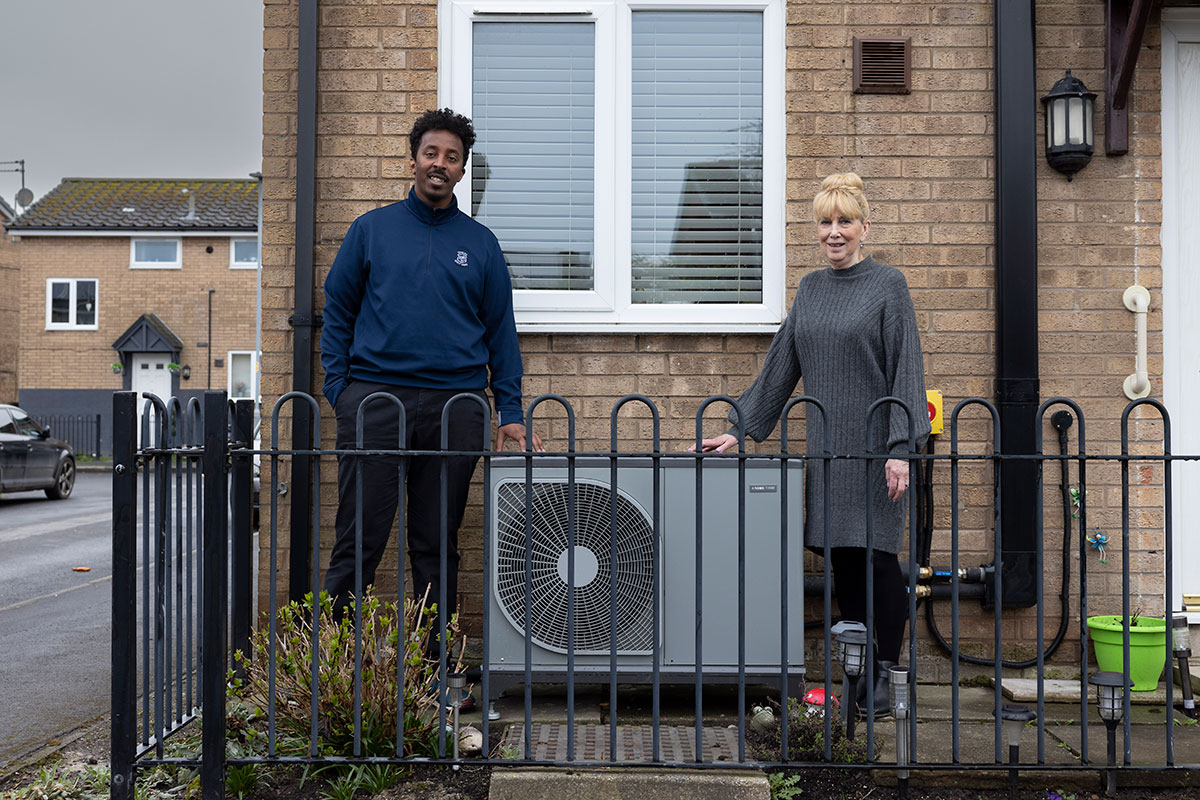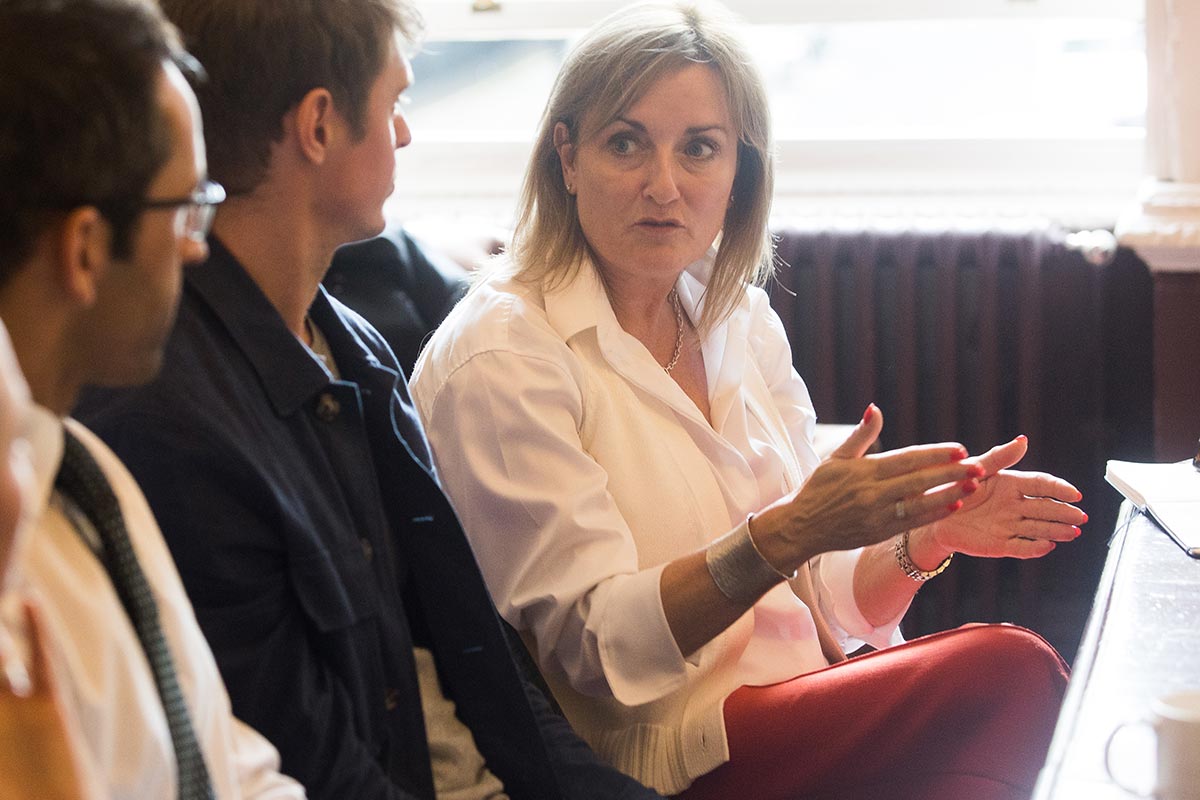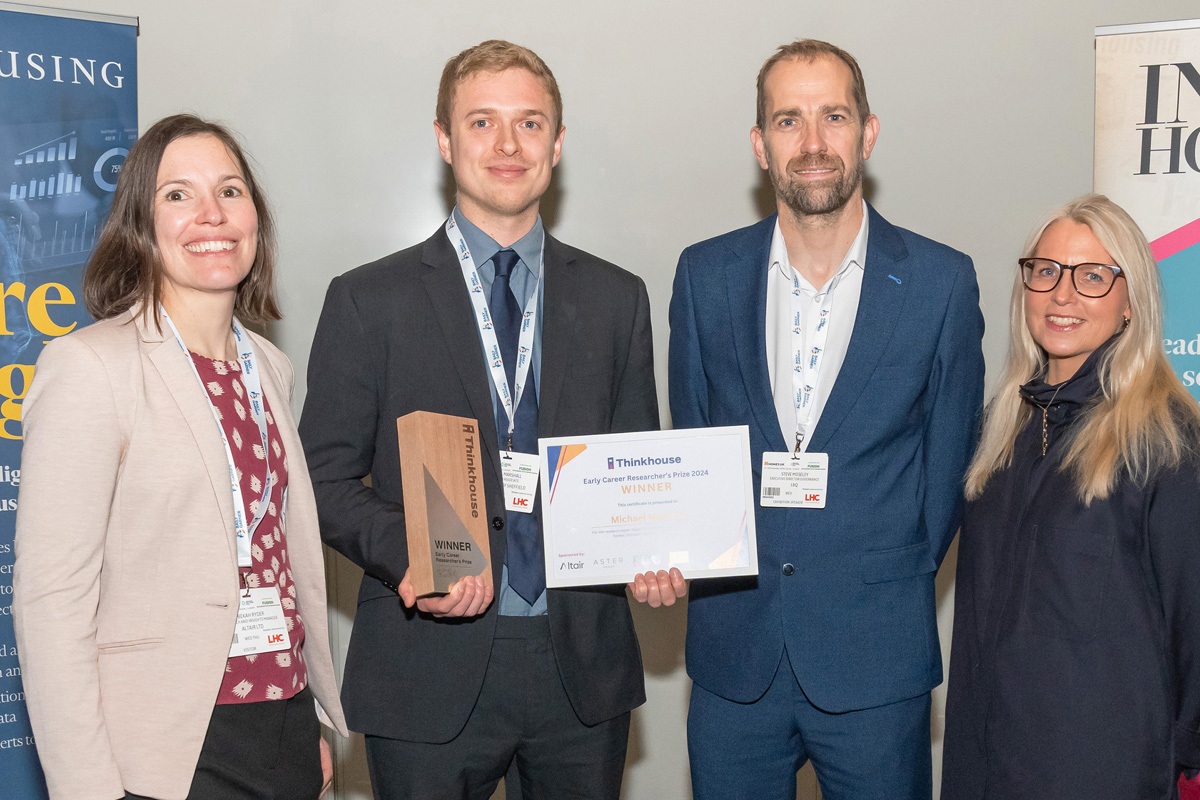Effective energy management is vital for decarbonisation: how are landlords going about this?
A vital part of reaching decarbonisation goals is to have an energy strategy. Inside Housing hosted a roundtable with Inenco to find out how social landlords are approaching it. Photography by Belinda Lawley
In association with:

At the beginning of July, Ofgem’s price cap announcement estimated that average household bills will be £2,074 a year, and a further announcement is expected in October. Never has there been a better time to ensure that landlords have an energy strategy in place to reduce energy consumption and costs in their residents’ homes – and their own operations. The big question is how to do this.
Inside Housing, in partnership with sustainability consultancy Inenco, gathered together a group of energy experts and sector specialists, chaired by editor Martin Hilditch, to understand how price rises have been affecting organisations’ approach to energy management and how data and analysis can help to reduce energy use as part of a decarbonisation programme.
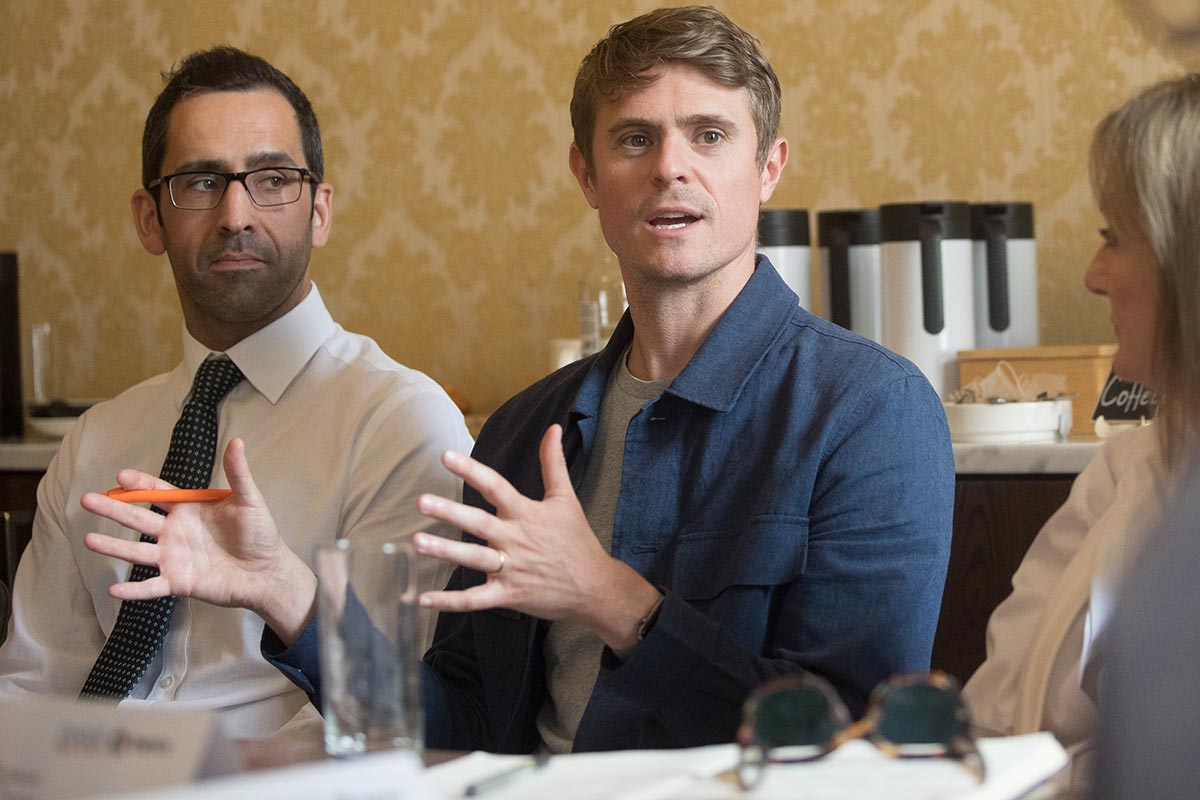
Data, funding and risk
Mr Hilditch asks the table how landlords are measuring consumption and whether this data is sufficient to make decisions to reduce usage as part of their net zero carbon goals.
Miles Lewis has been evaluating just that in his role as director of sustainability at Clarion Housing Group, to help him understand where the association is in terms of Scope 3 emissions – what the landlord is indirectly responsible for in its chain and residents’ energy usage.
He says: “We’re looking at supply parity and performance of homes because we’ve got 3,000 homes to build each year… Even though the data might not be perfect, you have to go on a journey where the start point is logical and what you’ve done is robust to put together a transition plan. I’m hoping that later in the year, we’ll be able to share this with the sector and show the method we’ve used to benchmark it and where we can improve.”
Paul Neale is sustainability manager at Soha Housing, which has 7,500 properties in Oxfordshire. As most homes are new, Soha has only 650 homes that are below Energy Performance Certificate (EPC) Band C.
He agrees with Mr Lewis: “It’s critical to get a carbon baseline to understand the cost. Finance is critical – if we don’t have the money, then it’s not going to happen.”
“While on paper I agree fabric-first is the approach that works best, it breaks the bank – and that’s a challenge for us,” says Steve Ellard, director of assets and sustainability at Yorkshire Housing, which has 20,000 properties across the county and 5,000 properties that require an upgrade to EPC Band C to meet the government’s 2030 target for social housing in England. “We had a conversation recently with our treasury advisors, who said from a stress-testing perspective, we’re now living in a time of what we would have called a ‘black swan’ a few years ago – it’s the reality now.”
Reducing consumption may not cut bills in a time of rising energy costs, Mr Ellard continues. “We recently received funding from the European Regional Development Fund for a retrofit scheme in Craven that had two specific aims: to reduce carbon emissions and to reduce residents’ energy bills. [When the retrofit was completed] we delivered way in excess on the carbon emission figures. However, because it happened at a time when energy costs were going through the roof, we weren’t able to reduce customers’ bills.”
Transparency
It is important to have transparency about the source of the data to have confidence in the analysis. Irina Mot, head of decarbonisation at Metropolitan Thames Valley Housing, says: “Our KPIs have dropped dramatically and we have had to explain where the data comes from, how we are using it and the challenges of it. This is the tyranny of data perfection, but data is not perfect. Sometimes how you look at the data is more important than the data.”
She suggests that creative ways and a different perspective can identify decarbonisation priorities.

Dan Pardesi, head of social housing at Inenco, says in the housing sector, the issue of gaining data to inform strategy can be complicated. Often because of large property portfolios, some landlords do not have up-to-date information on energy meter locations.
“Roll-out of automatic meter reading (AMR)/smart meters is increasingly important, as this will provide data that can be used to accurately report carbon emissions, focus investments and drive reductions in usage. With energy suppliers now fined for failure to roll out AMR, and those costs likely to be passed on, those landlords who support the roll-out quickly will also see financial benefit on their energy bills.”
For Lucy Breeze, sustainability manager at Golding Homes, an association that manages 8,500 homes across Kent, it is about joining up an organisation’s programmes to make a whole-house approach, rather than individual department goals, so that retrofit can work. “We’ve got huge support from our board and executive team. However, there is a gap between what our ambition is, our capacity and results. It’s not a rate of work that is sustainable because as a small organisation, there’s a lack of resource and we need to bring in the skills and labour,” she says.
“Resource is not just about capacity, it’s also about skills. I’m passionate about all colleagues having a
level of understanding. [We shouldn’t see it as] a sustainability problem. It is not a problem – it’s the way forward – and an opportunity that applies to everyone,” says Tessa Barraclough, head of sustainability at Riverside Group.
“Articulating our problems is vital. Then you can push the conversation out to the innovation community and share learning,” says Denise Massey, managing director at the Energy Innovation Centre. “And we need to collaborate to leverage knowledge. A good example of this is that the energy industry is looking for skills, not just because of the age of the workforce, but also due to net zero goals. We need the insight from people who’ve worked in the networks for years.”
Managing energy
Many organisations have faced energy cost increases, says Mr Pardesi. “Energy is a tradeable commodity that can be bought up to five years in advance. At the moment, the market is cheaper the further in advance that you secure prices.”
The system needs to be redesigned “on the basis that what we’re doing now oppresses the future”, says Chit Chong, group sustainability manager at Peabody. “We pay an amount for units to a threshold, then once over that, the price per unit reduces. Our system is in favour of high consumers – if you’re a high user, you effectively pay less. We need to have social tariffs.”
Ms Barraclough asks who has control of energy use. “For any aspect of the business, we have to sign a purchase order for everything we do, and for everything purchased – even down to the sandwiches we have at a meeting. However, nobody has to sign a purchase order to turn the light switch on. That control on energy consumption and energy spend is really lacking.”
“The increase in energy costs has been a game-changer,” says Derek Watters, head of environmental sustainability at Places for People. “We own and manage 230,000 assets. Our energy bills are £7m. We have recently procured our electricity contract and it has tripled in real terms, our gas contract is due in October and we’re expecting an increase… This has had an impact on service charges, so we have supported our residents with fuel vouchers and given more than £1m in assistance. Maybe it’s time for landlords to recruit designated energy managers?”
Ms Breeze says it is the same situation at Golding Homes: “Utilities are what keep me up at night. It dwells in my mind because no one manages it. I’m the sustainability manager, but I’m also kind of the energy manager. Previously it wasn’t looked at – it was a case of paying the bills – so [this present time has helped to] reinforce the fact that we do need to keep track of our energy use… and to find the meters and information.”
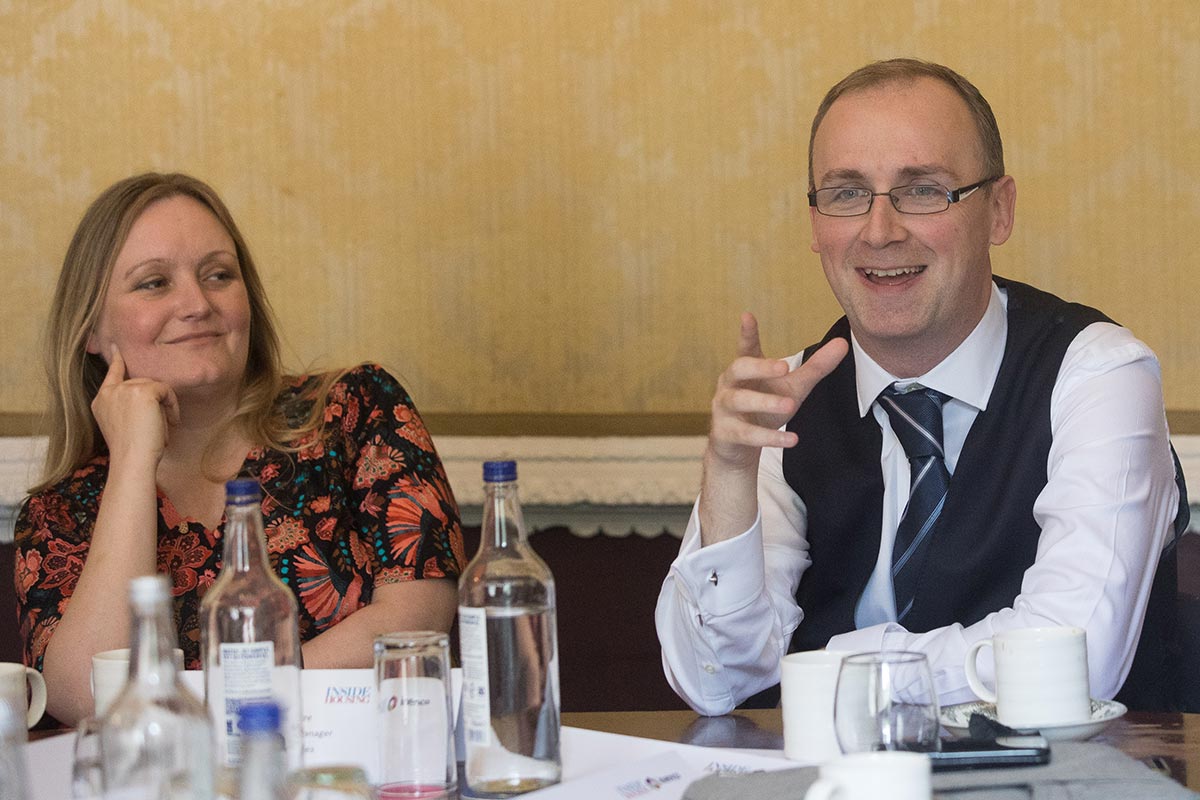
“Now is the time to plan and set an energy strategy. Organisations need to think about how they buy energy and what is the best way to minimize risk. For the housing sector, this applies not just to energy used in the organisation’s own operations, but also to communal energy included in service charges,” says Mr Pardesi.
How can the sector work together?
“I’m really interested in collaboration in the sector – it’s really important, particularly for smaller organisations [like Soho Housing], because we don’t have the staff to do everything. So it will be key to moving forwards. It will be the only way we will get things done [when it comes to decarbonisation], says Jane Harrison, finance director at Soho Housing.
“It’s tricky because the housing sector is a very competitive environment. Let’s not kid ourselves. We’re all fighting for money. So maybe the first point of collaboration is to agree that we’re all measuring the same,” Mr Watters suggests. “If we’re all on the same playing field, playing by the same rules, there will be no one in the sector trying to get ahead.”
Ms Massey agrees, saying competition is the issue in the energy sector, but she suggests there is another relationship that can be collaborative for the housing sector, and that is with the energy sector itself: “It has
an obligation to support innovators.”
Richard Orr, head of asset and regeneration at River Clyde Homes, asks how we find a common pathway and shared outcomes, and deliver on it. “[In Scotland] we are discussing setting up a procurement pathway and working with like-minded associations. It is a challenge for the sector to mobilise at the pace that carbon net zero goals require because of a limited talent pool, so a pathway to join up knowledge as well as buying power is beneficial. The certainty and visibility around who is doing what, where and when is crucial to unlocking many supply chain issues beyond the idea of price control and leverage product gains. If we collaborate and agree as a sector, we will accelerate change.”
Participants
Martin Hilditch (chair)
Editor, Inside Housing
Tessa Barraclough
Head of sustainability, Riverside Group
Lucy Breeze
Sustainability manager, Golding Homes
Chit Chong
Group sustainability manager, Peabody
Steve Ellard
Director of assets and sustainability, Yorkshire Housing
Jane Harrison
Finance director, Soho Housing
Miles Lewis
Director of sustainability, Clarion Housing Group
Denise Massey
Managing director, Energy Innovation Centre
Irina Mot
Head of decarbonisation, Metropolitan Thames Valley Housing
Paul Neale
Energy and sustainability manager, Soha Housing
Dan Pardesi
Head of social housing, Inenco
Richard Orr
Head of asset and regeneration, River Clyde Homes
Derek Watters
Head of environmental sustainability, Places for People
Sign up for our asset management newsletter
Already have an account? Click here to manage your newsletters


